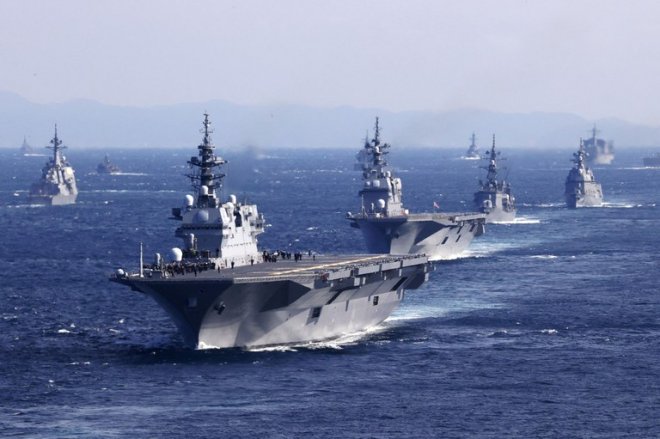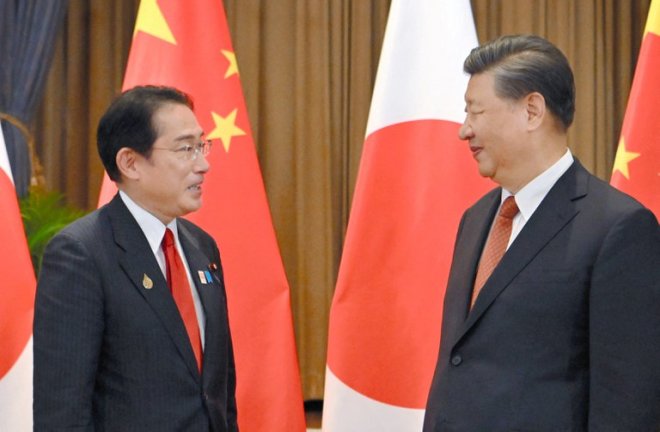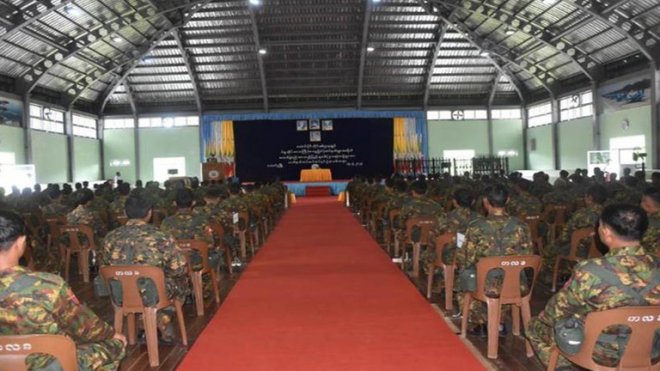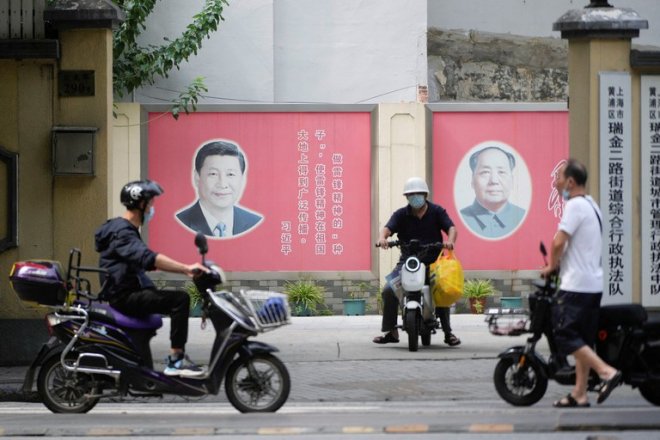Japan raises defense spending to deal with China challenge
Japan has designated China an unprecedented "strategic challenge" and is boosting defense spending to cope with new challenges in a National Security Strategy launched Friday.Beijing has already given a pre-emptive response, with a foreign ministry spokesman accusing Tokyo of “ignoring facts” and “hyping up the China threat.”
In the previous security strategy formulated in 2013, Japan described China’s "external stance and military activities" as an "issue of concern.” The change of language has been criticized in Chinese state media as “aggressive” and “provocative.”
Japan"s ruling Liberal Democratic Party (LDP) and its coalition partner, Komeito, reached an agreement earlier this week on the draft revisions of three security documents – the National Security Strategy, the National Defense Strategy and the Defense Force Preparedness Plan.
The changes also include details of Japan’s plan for a major upgrade of its defense capabilities in what many see as the country’s largest military buildup since World War II.
The new strategy speaks about existing geopolitical tensions and hotspots including the war in Ukraine, potential risks of conflict over Taiwan, the situation on the Korean Peninsula and territorial disputes in the South China Sea.
It calls for boosting Japan’s “counter-strike capabilities,” a remarkable shift away from the pacifist doctrine that has been at the core of Japan’s international policies for 70 years.
 Japan"s Maritime Self-Defense Force destroyer Izumo leading the fleet during the International Fleet Review at Sagami Bay, off Yokosuka, Nov. 6, 2022.
Japan"s Maritime Self-Defense Force destroyer Izumo leading the fleet during the International Fleet Review at Sagami Bay, off Yokosuka, Nov. 6, 2022. CREDIT: Kyodo/via Reuters
What’s in the name?
The LDP, in its recommendations in April, called for a tougher approach to China’s increased assertiveness documented by frequent incursions into the waters near the Senkaku Islands, controlled by Tokyo but also claimed by Beijing, which calls them Diaoyu.
Japan is also supportive of the U.S.’s Indo-Pacific Strategy in which U.S. policy makers pointed out that China’s “coercion and aggression spans the globe, but it is most acute in the Indo-Pacific.”
The ruling coalition however stopped short of using the word “threat” when describing China in the National Security Strategy and instead designating it a “strategic challenge.”
“Japan has no choice but to live next to China,” said Stephen Nagy, senior associate professor at the Department of Politics and International Studies at Tokyo’s International Christian University.
“As a consequence, it purposely never proactively uses language that can provoke China,” he said, adding that “this does not mean that Japan thinks China is not a big problem but there is no need to move away from ambiguity when the U.S. does it for them.”
Meanwhile, some other analysts see the move as a “very important development” in Japan’s dealing with China.
Rena Sasaki, an East Asian security analyst based in Washington D.C., told RFA that in her opinion, “describing China as a ‘strategic challenge’ in the new National Security Strategy is a break with the usual accommodating attitude toward China for economic gains.”
China is Japan’s largest trading partner, and the 2013 National Security Strategy, while expressing concerns about China"s military activities, stated that China and Japan would "work to build and strengthen mutually reciprocal strategic relations and work to strengthen it" in all areas.
“This reflected the Abe administration"s strategy toward China at the time, and was an expression of its policy of showing a certain degree of accommodation with China for its economic interests while building a gradual encirclement of China,” said Sasaki.
 Japanese Prime Minister Fumio Kishida meets Chinese President Xi Jinping on the sidelines of the Asia-Pacific Economic Cooperation (APEC) Summit in Bangkok, Nov. 17, 2022. CREDIT: Kyodo via Reuters
Japanese Prime Minister Fumio Kishida meets Chinese President Xi Jinping on the sidelines of the Asia-Pacific Economic Cooperation (APEC) Summit in Bangkok, Nov. 17, 2022. CREDIT: Kyodo via ReutersMilitary buildup
There have been efforts to smooth differences and prevent further deterioration of the bilateral relations which have been strained in recent years.
Japanese Prime Minister Fumio Kishida met with Chinese President Xi Jinping for the first time in three years on the sidelines of the Asia-Pacific Economic Cooperation (APEC) Summit in Bangkok in November.
Japanese Foreign Minister Yoshimasa Hayashi plans to travel to Beijing later this month to meet with his Chinese counterpart Wang Yi.
The two countries also plan to start a defense hotline in the spring to minimize risks of incidents at sea and in the air.
Tokyo nevertheless is set to increase its military spending with a focus on countermeasures. Kishida has already announced plans to increase the defense budget by about 60% to ¥43 trillion (U.S.$315 billion) over the next five years.
China has increased its defense budget by 130% in the last decade and it is now five times larger than Japan’s, according to the Stockholm International Peace Research Institute (SIPRI). In 2021 alone, Beijing spent an estimated U.S.$293 billion on the People’s Liberation Army.
Japan"s new defense strategy argues that relying on the current defense system is not enough and the country would need to acquire more “counter strike” capabilities, especially long-range land and sea-launched missiles.
Other areas of priority development are the coast guard and cybersecurity.
The Japanese government however states that the buildup is “exclusively defensive” and that the ban on nuclear arms remains firmly in place.
With the new strategy though, “Japan-China relations will continue to be awkward at best,” according to Tokyo-based Stephen Nagy.
“Tokyo will continue to build stability throughout the region to be resilient against Chinese assertive behavior,” the analyst said.
[圖擷取自網路,如有疑問請私訊]
|
本篇 |
不想錯過? 請追蹤FB專頁! |
| 喜歡這篇嗎?快分享吧! |
相關文章
AsianNewsCast























